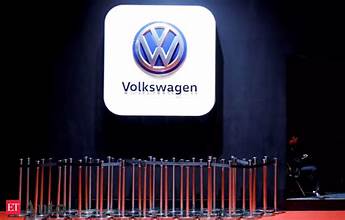Volkswagen (VW) workers across Germany launched massive strikes on Monday, marking the company’s most significant labor disruption since 2018. Tens of thousands of employees at nine of VW’s ten German plants participated in the walkouts, organized by the IG Metall labor union.
What Led to the Strikes?
The strikes follow weeks of failed negotiations between Volkswagen and IG Metall. The union demands job security amid concerns over potential mass layoffs and plant closures—moves VW claims are essential due to mounting competition from Chinese automakers and weak European sales.
A “peace obligation,” which had previously prevented industrial action, expired Saturday, clearing the way for the strikes. Thorsten Groeger, IG Metall’s chief negotiator, described the situation as “the toughest wage dispute Volkswagen has ever seen.” He accused VW management of escalating tensions, stating, “Instead of extinguishing the fire, they keep throwing barrels of gasoline onto it.”
Key Demands and Potential Impact
- Union’s Position: IG Metall has urged VW to commit to job security by ruling out factory closures. Workers even proposed forfeiting €1.5 billion ($1.6 billion) in pay increases if executives agreed to sacrifice a portion of their bonuses.
- VW’s Stance: Volkswagen has argued that cost reductions, including a 10% employee pay cut, are necessary to safeguard the company’s future and maintain competitiveness.
While the strikes currently last only a few hours, IG Metall has warned that more extensive 24-hour or even indefinite strikes could follow if demands remain unmet.
Volkswagen’s Challenges Mount
The strikes come as Volkswagen struggles financially. The automaker reported a 20% drop in operating profits for the first nine months of 2024, with declining sales in China—a critical market where VW is losing ground to local electric vehicle brands.
The disruption adds pressure to Europe’s largest carmaker, which has already hinted at the possibility of closing German plants for the first time in its 87-year history.
Negotiation Outlook
Volkswagen emphasized its commitment to finding a solution through “constructive dialogue” while taking steps to minimize the strike’s impact on operations and customers. The next round of negotiations is scheduled for December 9.
This escalating labor dispute highlights the challenges facing not only Volkswagen but also Germany’s broader economy, as Europe’s largest automaker grapples with global competition and shifting market dynamics.






